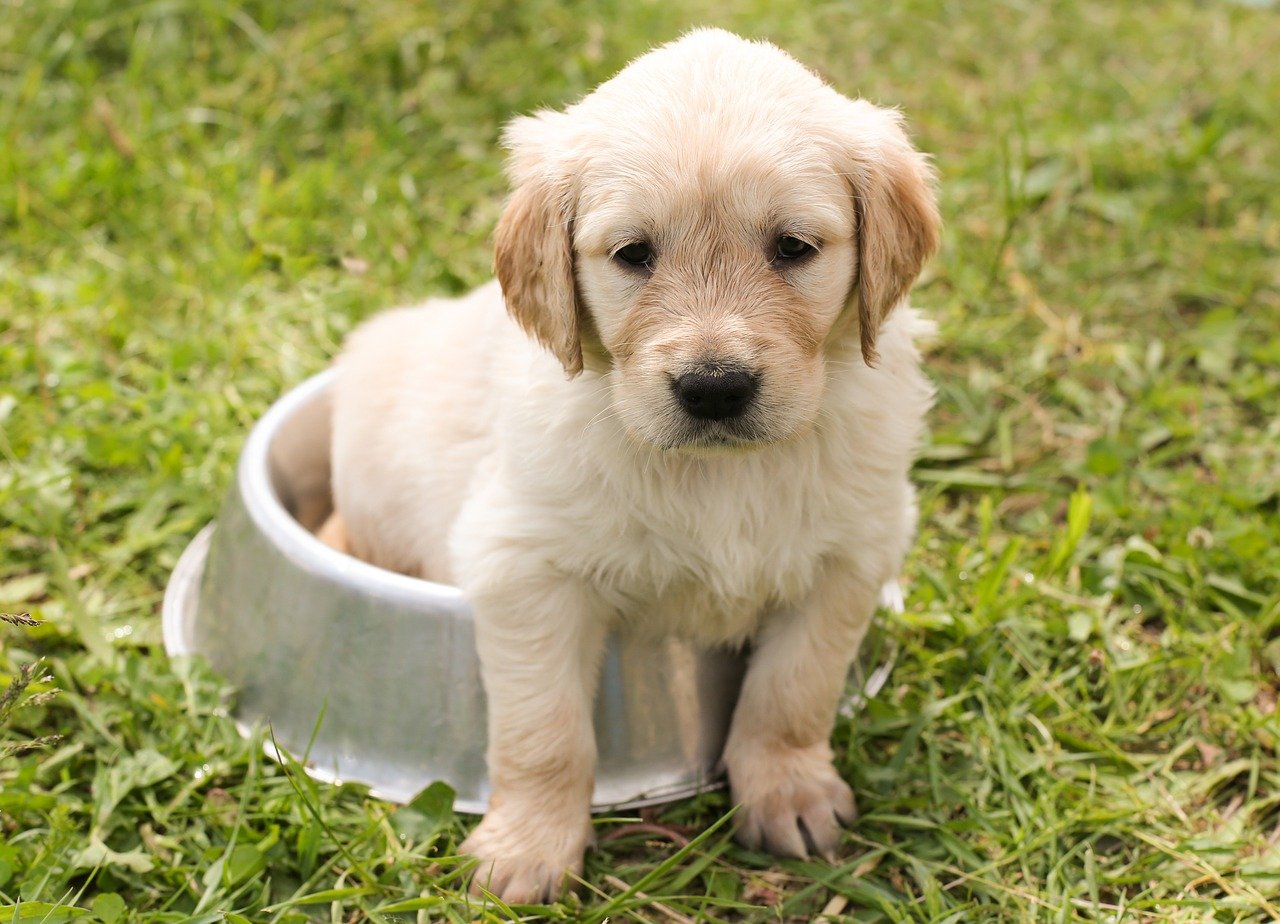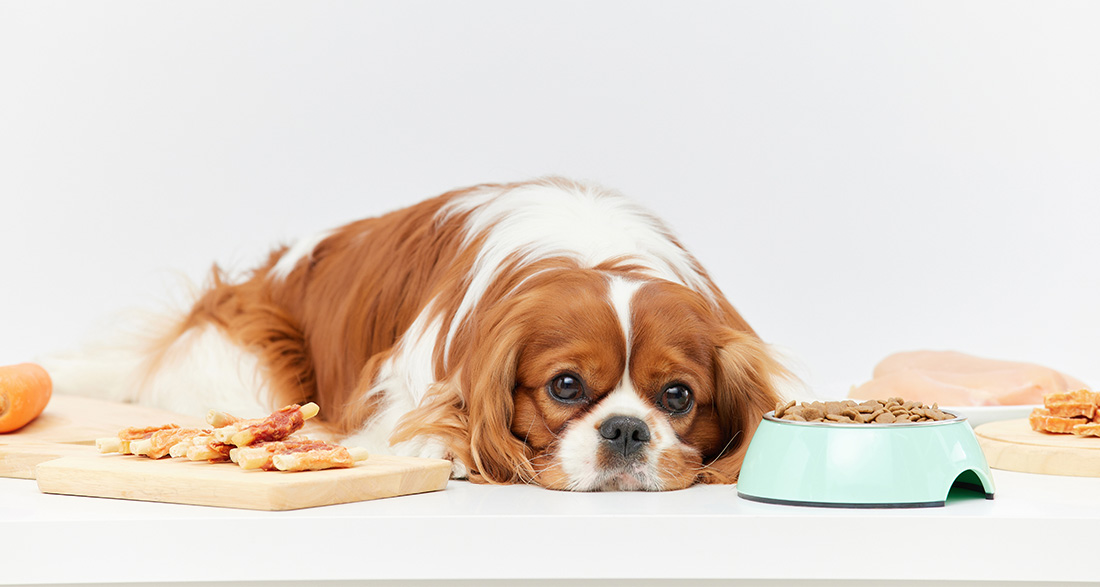For the new family member, pet parents want nothing but the best. A healthy, happy, and, above all, long life is what they wish for their little dog. This includes providing the best, which also involves ensuring a healthy dog diet. When a puppy refuses to eat, most dog owners immediately become concerned. However, in many cases, these concerns are unfounded as there are often harmless reasons behind the lack of appetite. Learn about the reasons for a puppy’s lack of interest in food, what you can do, and when a visit to the veterinarian is recommended.
What are Unconcerning Causes for Your Little Dog’s Appetite Loss?
Does any of the following situations apply to your four-legged friend?
- The puppy eats its food for a few days and then stops.
- It is picky, refuses to eat, and waits for you to offer something else.
- The puppy doesn’t eat from its bowl, but if you hand-feed it, there’s no issue.
If your little furry friend exhibits any of these behaviors or something similar, there’s usually no need to worry. The reasons are typically harmless and do not have a negative impact on its health. Additionally, you can usually take simple steps to address the issue.
Here are some possible reasons why your puppy might not be eating:
- Overfeeding: The recommended amount is usually provided on the food packaging, but individual needs may vary. If your puppy isn’t eating, it might simply be full. Reduce the portion within the feeding recommendation and limit treats. This can quickly resolve the issue.
- Dislike for Treats: Some puppies may not make an effort for treats, knowing that they have access to regular food anytime. Consequently, they might refuse the treat.
- Training You: The puppy avoids its food, and the caring pet owner immediately provides something else. The puppy eats the new food for a while and then repeats the behavior. It might be trying to “train” you to offer something different or more appealing.
- Preference for Hand Feeding: If the food is in the bowl, your small four-legged companion avoids it. However, if you feed it from your hand or let it fall on the floor, the puppy eats it without any issues. This behavior could stem from a dislike for eating from the bowl, possibly due to factors like bowl size, material, or other characteristics. Some dogs may have a fear of shiny stainless steel bowls.
- Enjoyment of Eating Together: Perhaps the puppy has found a new liking for the game of eating together with you. In this case, the dog is trying to “train” you for attention.
- Teething: If the puppy is not eating, teething could be a reason. You can check by offering something soft instead of something hard. If the puppy eats it, inspect its teeth. If it’s losing teeth, the cause is likely difficulty in chewing hard dry food.
- Moving to a New Home: The initial period in a new home is exciting. The puppy wants to explore the new surroundings, discover new scents, and mark its territory. Amidst all this excitement, it may forget about its food or have a diminished appetite.
What Can You Do If Your Puppy Won’t Eat?

If your puppy refuses to eat, start by reducing the amount of dog food and treats. Especially if you’re using a lot of treats for training, it might simply not be hungry.
Stay persistent, and don’t immediately switch the type of food. In most cases, puppies will eventually eat when they are hungry and realize they won’t get anything else. However, if there is a genuine concern about nutrition, opt for high-quality puppy food that is both tasty and easily digestible. Food intolerances or allergies to specific ingredients could lead to food refusal.
Generally, frequent changes in diet are not recommended. Unlike humans, dogs’ digestive systems are not designed for a varied diet. Their gastrointestinal tracts are sensitive, and sudden changes in food can cause issues like diarrhea and vomiting.
Tip
Don’t leave food available all the time. Only fill the bowl during feeding times. If the puppy hasn’t eaten in 10 minutes, remove the food. This helps it learn to eat when offered.
If your puppy has issues with its bowl, try replacing it. If that doesn’t work, create a trail or hide the food to make it more interesting. You can also take the food with you for training and walks, offering it instead of treats.
During the teething period (around three to seven months), consider switching to wet food or soaking dry food in lukewarm water for about 10 minutes. This makes eating easier for the puppy. Once it has its full set of teeth, this problem usually resolves itself.
Give the new family member time to acclimate to its new home at its own pace. If you avoid overwhelming it, it will find time to think about its food.
Patience is crucial. Often, a puppy’s refusal to eat is due to the new environment. As long as it’s healthy, it will likely start eating on its own after some time. This is thanks to its natural survival instinct. However, observe it attentively. If it shows any other unusual behavior besides the lack of appetite, consult with a veterinarian.
When Does It Become a Problem if the Puppy Won’t Eat?
If your small, four-legged friend refuses to eat, it could also have physical causes. These should be diagnosed and treated by a veterinarian to avoid compromising the dog’s health.
Possible causes include:
- Foreign Object in the Mouth: This could be a piece of a chew toy or bone.
- Inflammation or Injuries in the Gums or Palate: Look for signs of injuries in the mouth area.
- Tooth Pain: Check for signs of tooth problems, especially if the puppy avoids chewing hard food.
- Digestive System Issues: This could manifest with symptoms like diarrhea, vomiting, and abdominal pain.
- Poisoning: If you suspect poisoning, seek immediate veterinary attention.
- Hormonal Changes: Such as heat, false pregnancy, or pregnancy.
- Psychological Reasons: Stress, changes in the environment, or loss of a primary caregiver.
Some of these issues can be observed with a careful examination of your puppy. Injuries in the mouth are relatively easy to identify. Additionally, some diseases present with other typical symptoms. Digestive issues are often accompanied by diarrhea, vomiting, and signs of abdominal pain.
In conclusion, one of the most common reasons for a puppy not eating is the adolescent phase, similar to human puberty. During this time, young dogs test their limits and try to train their owners. If you suspect that there are health-related reasons for food refusal, consult with a veterinarian.


